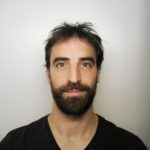Link to Pubmed [PMID] – 28630429
Sci. Rep. 7, 016303–11 (2017)
Diatoms are a fundamental microalgal phylum that thrives in turbulent environments. Despite several experimental and numerical studies, if and how diatoms may profit from turbulence is still an open question. One of the leading arguments is that turbulence favours nutrient uptake. Morphological features, such as the absence of flagella, the presence of a rigid exoskeleton and the micrometre size would support the possible passive but beneficial role of turbulence on diatoms. We demonstrate that in fact diatoms actively respond to turbulence in non-limiting nutrient conditions. TURBOGEN, a prototypic instrument to generate natural levels of microscale turbulence, was used to expose diatoms to the mechanical stimulus. Differential expression analyses, coupled with microscopy inspections, enabled us to study the morphological and transcriptional response of Chaetoceros decipiens to turbulence. Our target species responds to turbulence by activating energy storage pathways like fatty acid biosynthesis and by modifying its cell chain spectrum. Two other ecologically important species were examined and the occurrence of a morphological response was confirmed. These results challenge the view of phytoplankton as unsophisticated passive organisms.

